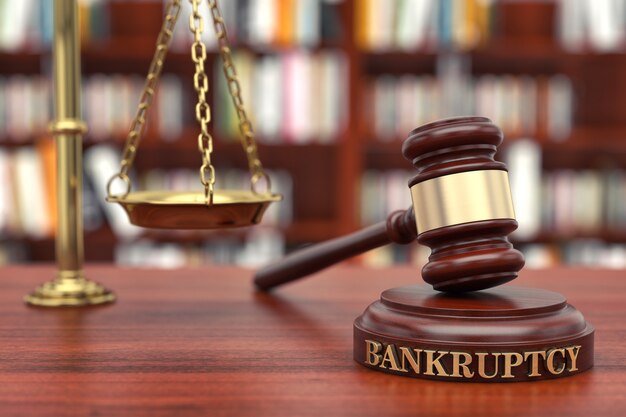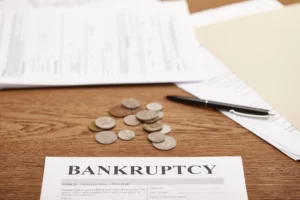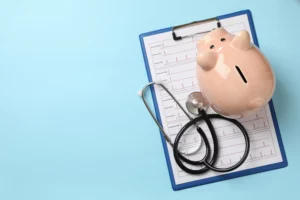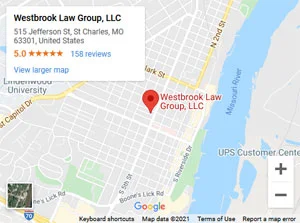
Looking at Reorganization Bankruptcy for Overwhelming Debts
Filing a bankruptcy petition is often attractive to those who wish to benefit from the automatic stay. Essentially, this form of bankruptcy protection shields you from calls from creditors and harassment from debt collectors. In general, it could help debtors stop foreclosure, stop wage garnishment, or stop repossession.
On the flip side, what repels most people from bankruptcy proceedings is that they stay on your credit report for up to ten years. Filing for bankruptcy
Before filing bankruptcy cases, it is highly recommended to seek legal help from a trusted Missouri bankruptcy lawyer. Experienced and hands-on bankruptcy attorneys can guide you in filing and preparing the necessary paperwork.
What this article will focus on are Chapter 13 bankruptcies. It is composed of the following sections:
- An Overview of Filing a Petition in Bankruptcy
- Advantages and Drawbacks of Declaring Bankruptcy
- What Does It Mean to File a Chapter 13 Petition for Bankruptcy?
- How Different is It from a Bankruptcy Proceeding Under Chapter 7?
- When Reorganization is More Ideal than Liquidation Bankruptcies
- Why No Two Bankruptcy Cases are the Same
- Seeking Quality Legal Advice for Your Bankruptcy Petition
An Overview of Filing a Petition in Bankruptcy
Declaring bankruptcy has helped so many people who are struggling financially. For bankrupt individuals who have explored other debt-relief options, it has become the best, if not the only, path to take. However, before working on bankruptcy proceedings, you will need a lawyer who can look thoroughly into your case.
Explain to your attorney all aspects of your finances, such as your regular income, total unsecured debt, and total secured debt. Tell him or her if a petition in bankruptcy had been filed in recent years, or if a bankruptcy petition was dismissed because of failure to appear or comply with a court order.
Top-tier bankruptcy lawyers in St. Charles can look into your specific circumstances and help you decide on the debt relief option or filing chapter that is most suited for you. These things must be taken very seriously, and you would not want to commit mistakes.
Advantages and Drawbacks of Declaring Bankruptcy
Very broadly, a Chapter 7 bankruptcy case will likely have your unsecured debts (such as personal loans, medical bills, credit card bills, and other loans with no collateral involved) discharged or forgiven.
A Chapter 13 petition for bankruptcy, meanwhile, can allow you to restructure or reorganize your finances. Proceeding with restructuring will allow you to work on making payments for secured debts. A credible bankruptcy attorney in St. Charles, MO can comprehensively explain the differences between these two.
Given the current situation, having to pay back credit card bills, medical bills, and personal loans can be especially difficult. Consequently, trying to stop repossession, foreclosure, or even wage garnishment can be quite a challenge.
While rebuilding credit after bankruptcy can indeed be challenging, it should be reassuring to know that it is doable. Monitoring your credit regularly and adjusting certain behaviors also help in establishing credit. A bankruptcy declaration may affect your creditworthiness, but most of the time, the pros almost always outweigh the cons.
What Does It Mean to File a Chapter 13 Petition for Bankruptcy?
Bankruptcy Chapter 13 is ideal for certain groups of people. If you filed for bankruptcy and proceeded with restructuring, you will be able to bring current payments for secured loans. Doing so can stop foreclosure or repossession of collateral (such as your home, car, or other personal property), which is a common reason people opt to file for bankruptcy under Chapter 13.
Before filing bankruptcy under this chapter, however, your monthly income must be regular, and your tax filings must be current. Filing Chapter 13, or what some people call the wage earner bankruptcy, comes with a repayment period that will run three or five years. Such can be difficult to fulfill if you have low or no regular income.
Furthermore, under relevant bankruptcy laws, there must be no Chapter 13 which have been filed in the last two years, no Chapter 7 filing must have been filed in the last four years, and no bankruptcy petition must have been dismissed in the last 180 days (for failure to appear in court).
How Different is It from a Bankruptcy Proceeding Under Chapter 7?
As previously mentioned, a Chapter 13 bankruptcy petition is often recommended for those with a lot of assets, are generally dealing with secured debt, and have the resources to pay back some of what they owe to creditors.
In contrast, filing Chapter 7 may be more ideal for bankrupt individuals whose problem debts exceed two-fifths of their annual income and cannot, therefore, pay off debts even with extreme measures. It is also generally apt for people whose problem debts include credit card debts, medical bills, payday loans, or other debts that a bankruptcy discharge may wipe out.
Before one can file Chapter 7 bankruptcy forms and paperwork, he or she must first pass the bankruptcy means test. Here, the filer’s monthly income and living expenses will be taken into account. If you pass, your bankruptcy trustee will then facilitate the meeting of creditors, sell your nonexempt assets, and pay creditors in a manner according to the bankruptcy code.
When Reorganization is More Ideal than Liquidation Bankruptcies
There are different types of bankruptcy that you may choose from, depending on your eligibility. Diligent and experienced St. Charles, MO bankruptcy lawyers can explain these things to you. A competent local attorney can also discuss the different bankruptcy rules and requirements that you must be aware of before you can declare bankruptcy.
Very broadly, a Chapter 13 bankruptcy enables you to restructure your overwhelming debts and bring current payments for secured debts. You can essentially avoid foreclosure and repossession by proposing a payment plan to the bankruptcy court. Here, the debt repayment plan will run for three or five years.
In contrast, if you require debt relief and are willing to have a trustee liquidate your non-exempt assets to pay off priority lenders, Chapter 7 might be a better option. However, you must first pass the bankruptcy means test to be qualified to file bankruptcy under this chapter. Essentially, your monthly income and living expenses will determine your eligibility as a filer.
Why No Two Bankruptcy Cases are the Same
Through the different bankruptcy chapters, countless people who were once bankrupt eventually had a fresh start in life. If you have any concerns related to the bankruptcy procedure, or if you are still unsure if it is best to file for bankruptcy, hire the best attorneys who will work closely with you.
Filing for bankruptcy erases most of your unsecured debt. While recent tax debt, criminal fines and penalties, student loans, alimony, and child support are generally not dischargeable, a bankruptcy declaration can enable you to repay these debts on time.
As mentioned, a bankruptcy petition will stay on your credit report for several years. However, while building your credit after bankruptcy can be quite challenging, it is not impossible. If you regularly check your credit report and take into account your credit utilization ratios, credit payment patterns, and repayment history, you can raise your credit score in a few months.
If you are struggling financially, considering bankruptcy could be the best course of action to take. Call us at Westbrook Law Group to know how we can help.
Seeking Quality Legal Advice for Your Bankruptcy Petition
Formally submitting your bankruptcy petition is key if you wish to benefit from the automatic stay (and prevent lenders and debt collectors from contacting or harassing you).
Aside from helping you fill out bankruptcy forms and prepare the necessary paperwork and supporting documents, a reliable local attorney can brief you on what to expect throughout the entire bankruptcy process. Bankruptcy attorneys will likewise help document your eligibility to a trustee.
Additionally, your lawyer can help you go through the scheduled Meeting of Creditors and subsequent confirmation hearing. All these can be overwhelming, which is why getting reliable legal services is key.
Contact us at Westbrook Law Group LLc today!
If you have any concerns about the above bankruptcy procedure, or if you are still unsure if it is best to file for bankruptcy, seek legal assistance from an established law office. Have your questions answered by a legal professional from a credible St. Charles bankruptcy firm and avoid hiccups and issues.
Call us at Westbrook Law Group LLC today. A qualified and credible Missouri bankruptcy attorney will look closely into your financial situation.






